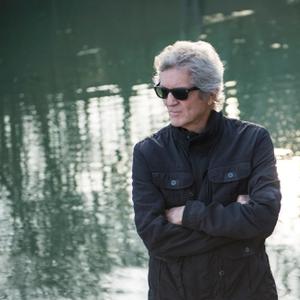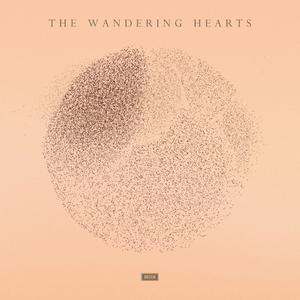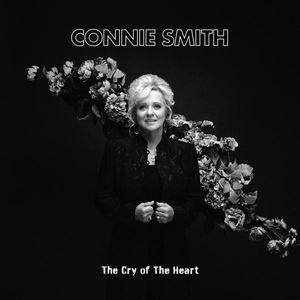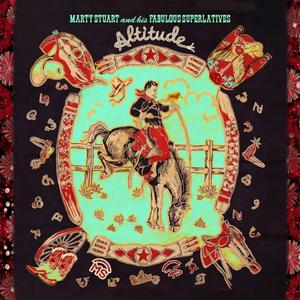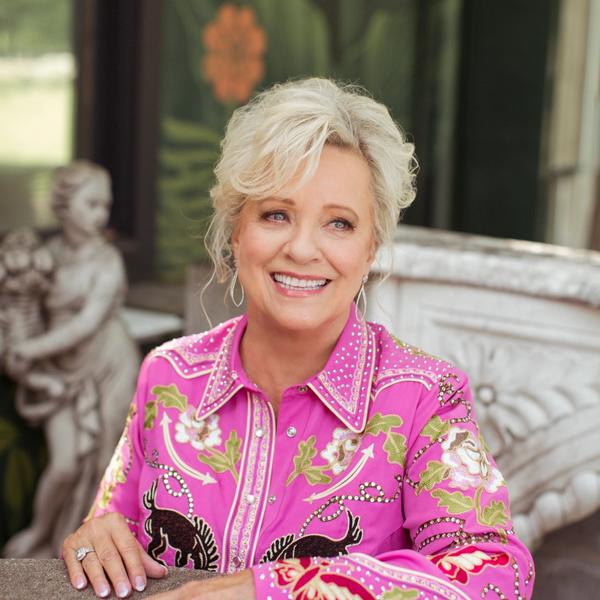




Link copied

According to Dolly Parton, there are really only three real female singers: “Streisand, Ronstadt, and Connie Smith. The rest of us are only pretending.”
As I talk to the real deal herself, Smith and her co-writer/producer/guitarist husband Marty Stuart are celebrating the release of The Cry Of The Heart – their third album together and her 54th in total. Sitting and chatting from her smart office in Hendersonville, north of Nashville, she smiles with pleasure at what they’ve achieved.
Born in Indiana in 1941, Smith spent her early life in West Virginia and Ohio. She was talent-spotted at 22 by country star Bill Anderson, and her 1964 debut single ‘Once a Day’ topped the charts for eight weeks. She moved to Nashville the following year, equipped with an essential ingredient: emotion delivered with conviction.
Smith worked with the best producers, writers and musicians, performed at the Grand Ole Opry, acted in country music movies and continued her top ten streak. But after a decade, she made the decision to step out of the limelight and quit the music business to raise her five children – though she never stopped singing.
Cut to the late 1990s, with her kids all grown up, Smith found that she’d caught the country music bug again. Soon she was collaborating with Marty Stuart, initially just writing and recording. He dubbed her “the world’s greatest finisher, polisher and helper”. Their friendship blossomed into romance and eventually marriage, and their songwriting partnership created numerous songs.
No wonder she’s beaming. `

When you moved to Nashville, what did you expect – and how did it differ?
Well, I was going down this four-lane street called Franklin Road, where Earl Scruggs and Martina McBride live, and I thought this is the biggest road in the world! It was huge to me back then — and now it’s just a road. I was coming back and forth from Southern Ohio when I cut my first record in ‘64, then moved here in April ‘65 and I’ve been here ever since. All I ever wanted was to hear myself one time on the radio!
How much control did you have back then?
I was very fortunate to sign to RCA records; Chet Atkins signed me but didn’t have time to work on my career because he had so many other great artists, from Skeeter Davis, to Hank Snow, to Jim Reeves. But he’d just signed a wonderful new producer called Bob Ferguson, and he would produce my first record – my first everything.
We’d go and hunt songs together. He’d get some in, and I’d go from publishing company to publishing company looking for songs – and if I saw something I liked I’d take it. Then together we’d pick songs we both agreed on.
In the studio, [Ferguson] would play a song, the musicians made their number charts, and we all threw in our ideas. If somebody played something I really didn’t want on the record I’d say so, and they’d do something different. It was a total collaboration between the producer – the boss – then me, then the musicians. It was the A-Team, and it was fun.
You must’ve had a real shorthand working together?
Yes, people still around from that era talk the same language. Hargus ‘Pig’ Robbins played piano on all my records [he still does], and steel guitarist Weldon Myrick [sadly deceased] also helped create the “Connie Smith sound”.
The first time we recorded, Bob turned up the treble on Weldon’s amp because there was no stereo, only mono. He wanted it to cut through the one speaker like the West Coast did, it was brighter and you could hear it really good. I always liked to have a note I didn’t use under my song, and a note above it, so if I had a bad day I could still reach them. But Bob had me sing as high as I could because, he said, it cuts through the radio - he was right!
Has Nashville changed since then?
Well, it’s certainly changed because I can go in one week, and then the next week it’s like: where am I? There’s so much building going on. Music Row doesn’t look like Music Row anymore; there’s some music, but there are more apartments and businesses in that area now. It’s totally different.
How have you and your voice changed?
My voice really changed when I had a really bad wreck one time. I hit a truck and my nose hit the steering wheel! Hopefully, in some ways, it’s better - though in some ways it’s not. You grow, you gain things and lose things. I don’t think I have the voice that I did, though I appreciate people saying I do. I have to work harder at doing what I do now than I did then.
“Country music is kind of a gauge of what’s going on in society – and that’s the way society was”
You chose to quit the music business for a time. Has it improved for women?
Country music is kind of a gauge of what’s going on in society – and that’s the way society was. It’s different today, but I’ve never been career-driven; I was fortunate and blessed to have success. I raised five kids, and have eight grandchildren and one great-grandchild now, so I had more time at home than I did in the business. It was my choice; there wasn’t enough of me to go around!
I was still singing at the kitchen sink, but as far as working constantly I quit – other than the Grand Ole Opry – so I lost touch. My goal was to grow up, get married and have a bunch of kids. I loved to sing, and that was it, so it didn’t hit me as much as the girls who were career-driven.
So you were a reluctant star?
I wanted to sing, but I didn’t care about being a star; I wanted to be with my family more. There were only ever two long tours that I undertook, but that was too much for me. I missed being with the kids and being home. So, yes, in that way I was a reluctant star.
Did you always think you’d end up in music?
I remember saying when I was five years old: someday I’m going to sing on the Grand Ole Opry. I always thought about that. It was a dream that kept me going as a child. Everybody needs a dream and that was mine, and it just kind of happened for me because I think it was my destiny.
“Probably the greatest compliment I got was from Jean Shepard, who said, “I hope they hang your plaque next to mine”. It was the sweetest thing I’d ever heard”
When did you think you’d made it?
This September, it’ll be 56 years since I performed at the Grand Ole Opry, which I love with all my heart, and in 2012 I was inducted into the Country Music Hall of Fame. You can’t get better than that. Marty will be inducted this year, and there are not that many members, so I couldn’t believe it. Probably the greatest compliment I got was from [singer] Jean Shepard, who said, “I hope they hang your plaque next to mine”. It was the sweetest thing I’d ever heard.
You’ve made 53 albums before – how was this one different?
We finished it before the pandemic, but it just wasn’t the time for it to come out. Marty was busy on the road constantly and I had plenty to do, so we were waiting for the right time. Now we’ve got about seven songs ready for the next album!
It was 13 years since I’d last recorded, and 20 years before that. When I first started out, we’d do three albums a year and a single every three months; that’s how we got to do so many albums. But then I love recording; I could do that and then go home to the kids.
How do you and Marty work on songs?
Everybody laughs at me because I always say I’ve got to have a song that I can get a hold of. I’ve been fortunate; when I came to town I knew so many great songwriters. They’ve got to make a living, so when you’re a hitmaker you’re more apt to get good songs.
I hadn’t had a record out in 20 years when Marty and I started writing together. I didn’t think I was good enough. I’d recorded some of mine, but always found somebody else’s song I thought was better. Marty picked up the phone and called Harlan Howard and the three of us wrote the first song that we did together.
Can you be more honest in your approach because he’s your husband as well as your producer?
Ha! We’re both that way. I had recorded in the ‘60s and still loved that type of recording. He was used to playing loud music and going at it his way, so we had to dial back a little bit of that to fit my criteria. I got to trust him and he got to understand what I liked. The more we work together, the more fun it is. We’ve got to find time to write together — sometimes it’s on the bus with nobody but the driver. Marty picks up the guitar, and that’s how we wrote two songs on this album.
We talked about music, business and guitars, then we started writing and he has such a heart, it just got to me quickly”
Can you recall exactly when you and Marty fell in love?
It all started when my second daughter Jeanne called, excited about her weekend, and asked what I was doing. When she hung up I thought, what am I going to do? I thought I could get back into the country music business, but who would I work with? The only person I could think of was Marty Stuart.
I saw him at the Opry and asked if he’d be interested in working with me. He said: I’m pretty busy, but if you can wait a little while, I’d be honoured. A couple of days later, he came over. We talked about music, business and guitars, then we started writing and he has such a heart, it just got to me quickly. I ran for a little while because he was so much younger. I called and said, “I think you better find yourself another songwriting buddy”, and he said, “Too late”! From there on, we’ve been together. We dated for three and a half years and we’ve been married 24 years.
What’s your favourite song on this new album?
I love every one of them, but the Carl Jackson songs - ‘To Pieces’ and ‘I’m Not Over You’ - which has been cut several times, and that Dallas Frazier song ‘I Just Don’t Believe Me Anymore’. The one that keeps going round in my head though is ‘Here Comes My Baby Back Again’ that Marty and I wrote.
Why did you pick the Merle Haggard song, ‘Jesus Take A Hold’?
I’d known Merle for years and admired his take on things. So when he wrote this song in the early ‘70s I recorded it. As a born-again Christian, I usually put a gospel song on every album. Marty wanted one that hadn’t been worn out and mentioned this one. I said, “Honey, I recorded that in the 70s.” He said it’s just as relevant today with what’s going on in our country and all over the world, so we put a different perspective on it and did a low-key acoustic version. Like I said, country music is a gauge of what’s going on in society and on that song Merle had the big picture.
I’m still striving to be a better person and better friend, mother and wife. A better singer, too. That’d be nice!
Looking back, are there things you wish you’d done differently?
It’s hard to have regrets. I wish I could’ve been a Christian sooner and made better choices in my life; that’s what made me who I am today. It’s taken me a long time to enjoy living with myself, and I appreciate that now. Yes, I have regrets, but not about the choices I made to be with my children and my family. I’m still striving to be a better person and better friend, mother and wife. A better singer, too. That’d be nice!
Connie Smith's new album, The Cry of the Heart, is out now via Fat Possum Records - Read Holler's 8.5 / 10 review of the album here.
Watch the video for Connie's latest single 'Here Comes My Baby Back Again' below.
Photography by Alysse Gafkjen.


